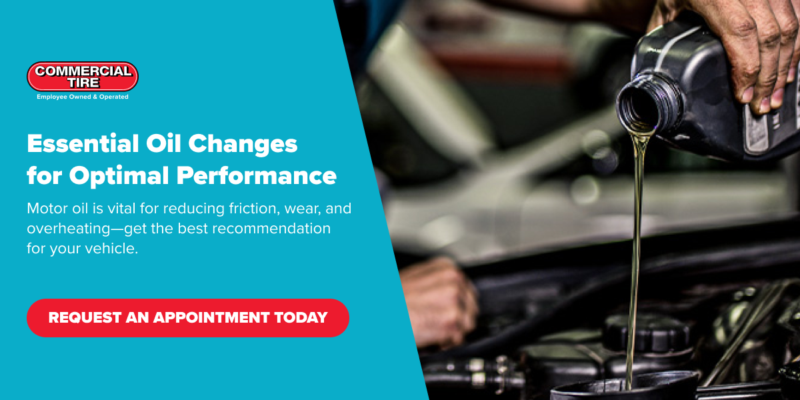Changing your car’s oil might not be the most glamorous aspect of vehicle ownership, but it’s undeniably one of the most important. Your engine relies on clean, fresh oil to function efficiently, and neglecting this crucial maintenance can lead to costly repairs down the road. But here’s the million-dollar question: how often should you change your oil?
Let’s answer that and explore why regular oil changes matter. We will also help you determine the best oil change schedule for your car and driving habits.
Importance of Regular Oil Changes
What is an oil change, and why is it important?
Think of engine oil as the lifeblood of your car. It lubricates moving parts, reduces friction, and keeps your engine cool. Over time, however, oil breaks down and becomes contaminated with dirt, debris, and combustion by-products. This can lead to dirty oil, which compromises your engine’s performance and accelerates engine wear.
Regular oil changes are essential for maintaining engine health and preventing sludge buildup. Neglecting oil changes can result in reduced efficiency, engine damage, and expensive repairs that could have been avoided with a simple oil change service.
Beyond engine protection, frequent oil changes improve fuel efficiency, extend the lifespan of engine components, and help your car run more smoothly. If you’re unsure when to schedule your next oil change, check your owner’s manual or consult with a trusted mechanic.
Factors Affecting Oil Change Frequency
When it comes to oil change intervals, there’s no one-size-fits-all answer. Modern engines, oil life monitors, and advancements in synthetic motor oil have extended oil change intervals for many new vehicles, but several factors still influence how often you should change your oil:
- Driving Habits: If you frequently take short trips, drive in stop-and-go traffic, or experience extreme temperatures, your oil may degrade faster. These conditions prevent the engine from reaching optimal temperature, which can reduce your oil’s effectiveness.
- Oil Type: The type of oil you use matters. Synthetic oil tends to last longer and withstand extreme conditions better than conventional oil, making it a popular choice for modern vehicles. Understanding the difference between synthetic oil vs conventional oil can help you choose the right oil for your car.
- Mileage: High-mileage vehicles often require more frequent changes to prevent additional engine wear. Regular maintenance ensures older engines remain reliable.
- Manufacturer Recommendations: Your owner’s manual will provide specific oil change tips and guidelines tailored to your vehicle’s needs. For some cars, the recommendation might be every 3,000–5,000 miles, while others can go up to 10k miles between changes.
Signs You Need to Change Your Oil Sooner
While sticking to a routine oil change interval is crucial, certain signs indicate you might need an earlier oil change. Pay attention to these red flags:
- Check Engine Light or Oil Light: If either of these lights illuminates on your dashboard, it could signal that your oil level is too low or that your oil has degraded. Ignoring these warnings may lead to engine inefficiency or potential engine damage.
- Dark, Dirty Oil: When you check your oil, it should be amber and somewhat translucent. If the oil looks thick, black, or gritty, it means contaminants have built up, and a fresh oil change is necessary to protect your engine components.
- Unusual Engine Noises: Knocking, ticking, or grinding sounds are often a sign that your engine components aren’t being properly lubricated due to old or insufficient oil.
- Excessive Exhaust Smoke: While some vapor is normal, visible smoke from the exhaust pipe could suggest burning oil, sludge buildup, or another internal issue. This can affect your car’s performance and point to more severe engine health problems.
- Oil Smell Inside the Cabin: A strong oil odor inside your car is often caused by a leak or overheating engine components. This can pose safety concerns and potentially result in more extensive repairs if left unchecked.
Addressing these issues promptly can prevent more significant problems and ensure your car’s performance is maintained.
How Oil Changes Impact Engine Longevity
Routine oil changes aren’t just about keeping your car on the road—they’re about safeguarding its longevity. Consistently using the right oil, whether synthetic motor oil or conventional oil, ensures your engine stays lubricated, clean, and efficient.
Failing to perform regular oil changes can lead to sludge, increased friction, and overheating. Over time, these issues cause excessive engine wear and may result in costly repairs. The simple act of changing your oil and replacing the oil filter can add years to your engine’s lifespan, preventing engine damage and maintaining its resale value.
At Commercial Tire, we understand how critical tire essential safety maintenance is, and that includes keeping up with routine oil changes to complement the health of your vehicle.
Additional Vehicle Maintenance Tips During Your Oil Change
While oil changes are crucial for your engine’s health, they’re also a great opportunity to take care of other important vehicle services. Consider these additional checks during your oil change to maintain optimal vehicle performance:
- Tire & Wheel Alignment Services: Proper tire alignment improves handling, extends tire life, and prevents uneven wear. Have your wheels aligned during your oil change to keep your vehicle running smoothly.
- Brake Repair and Services: Your brake system is vital for safety. Have your brakes and rotors inspected regularly to ensure they’re in good working condition.
- Vehicle & Car Battery Services: Your car’s battery powers critical systems, including the engine. Checking the battery’s charge during your oil change ensures that it’s working properly and can help you avoid an unexpected breakdown.
- Shocks and Struts Inspection: Worn shocks and struts can affect the handling of your vehicle. Regular checks during your oil change can help catch potential issues before they affect your ride quality and vehicle safety.
- Vehicle Air Conditioning Service: If your air conditioning isn’t working as well as it used to, an oil change is a good time to have it inspected.
Why Choose Commercial Tire for All Your Vehicle Needs
When it’s time for your next oil change, why not trust the experts? At Commercial Tire, we provide comprehensive oil change services tailored to your vehicle’s needs. We offer Premium Conventional Blend and Premium Full Synthetic Motor Oils to meet every driver’s needs, paired with a complimentary vehicle safety inspection to give you peace of mind. Whether you drive a newer car or a high-mileage vehicle, our team ensures every step of the process, from inspecting the oil drain plug to checking oil life monitors, is handled with care. Locate the nearest Commercial Tire store to experience our reliable service. Whether you’re interested in maintaining your car’s engine health, exploring new specials, or even learning more about our services, we’ve got you covered with convenient tire and auto repair shop locations across Utah, Idaho, Washington, and Oregon, all designed to serve you better.

